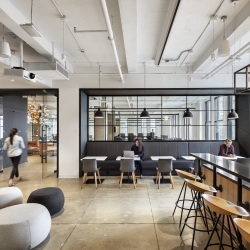November 28, 2022
Lease cycle means West End office market will ‘reset’ by 2025
 A BNP Paribas Real Estate analysis claims that London’s West End office market is on course to ‘reset’ by 2025 following a major leasing event cycle commencing in 2023, which will see a flurry of renewals, expiries and break clauses executed by both landlord and tenant, which will alter the market as we know it by the milestone year. According to the firm’s own West End data, 40 percent of the market will have a lease event in 2023 and 2024, with equally large volumes to follow in the two subsequent years. This freedom of tenant movement coupled with a restricted supply line, could drive rents on prime buildings from their current 2022 position of £140 sq ft to £200 sq ft in 2023 and £250 sq ft in 2024, and further into 2025 where the initial cycle ends. More →
A BNP Paribas Real Estate analysis claims that London’s West End office market is on course to ‘reset’ by 2025 following a major leasing event cycle commencing in 2023, which will see a flurry of renewals, expiries and break clauses executed by both landlord and tenant, which will alter the market as we know it by the milestone year. According to the firm’s own West End data, 40 percent of the market will have a lease event in 2023 and 2024, with equally large volumes to follow in the two subsequent years. This freedom of tenant movement coupled with a restricted supply line, could drive rents on prime buildings from their current 2022 position of £140 sq ft to £200 sq ft in 2023 and £250 sq ft in 2024, and further into 2025 where the initial cycle ends. More →







































